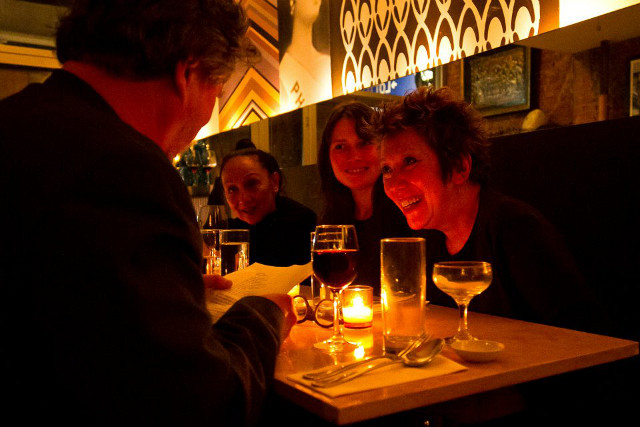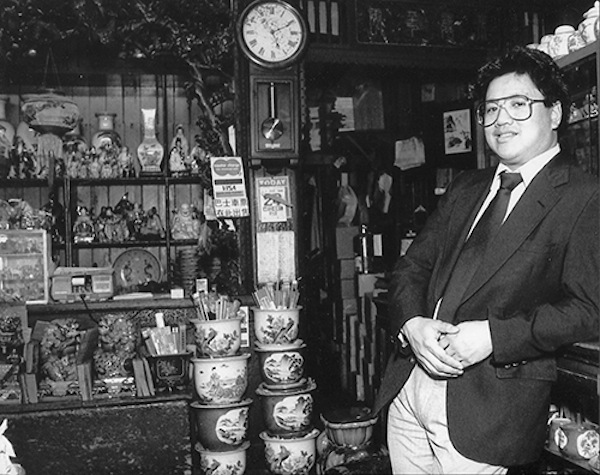Marcos knew that power rested not just on fear and terror, but also censorship and propaganda.
September 19, 2022
This piece is part of the notebook Against Forgetting, which features art by Neil Doloricon.
When Ferdinand Marcos declared his “New Society” in 1972, my high school placed an embargo on the literary magazine I was editing. Never mind that the aborted issue was simply devoted to love poems, a theme I had come up with to encourage more contributions from my fellow students. The school also canceled a play I had already started rehearsing for the English Club. As our adviser explained to me, “It’s too close to home.” It was Arthur Miller’s The Crucible.
Censorship was my initial experience of the military dictatorship, and censorship would dog me all through the next fourteen years.
My mother lost her job at The Manila Times, and her publisher and most of her senior editors were thrown in jail. Our family relied on my grandmother’s support for the next few years, when my mother literally went knocking on the doors of editors of newly established pro-Marcos newspapers, begging for a job. Many of them were her former subordinates who had moved up the social ladder following the purge, and slammed the door in her face. These same editors would soon institute a policy of payola—pay for a feature or a good review—that would characterize the entire Marcos-era ethos.
In my junior year at university, I was literary editor for the student paper and wrote a satirical piece on the uselessness of ROTC—compulsory military training led by minimally educated officers whose sole agenda was to drum into us, in broken English that grated my ears, the importance of military rule and the most efficient way to kill its enemies (with a bayonet, apparently).
I argued, half-jokingly, that our Sundays would be better spent doing social work around the slum communities that girdled our campus. After several weeks of harassment—I was not allowed to take the final exams, for unexplained reasons—my dean offered me an honorable dismissal and advised me to enroll elsewhere. The university’s military command “wanted to teach me a lesson” and had threatened to send me to a military camp, where she suspected I would be tortured, if not killed.
I lost my scholarship and couldn’t afford to pay my own tuition, but I was more than happy to leave that stifling environment. I found a job at a rock music magazine, joining a staff of people my age who were as reckless and rebellious. The magazine’s publisher, an old fogey at twenty-nine to us teenagers, had complied with the censors’ rule to remove all images of “degenerates” with long hair, and its first issue since the declaration of martial law carried surreal photos of rock stars with their signature manes crudely wiped out.
I stayed with that magazine for several years. We wrote freely and prodigiously, embedding comments about martial law within our essays, reviews, and jokes page (which was the most popular feature of the publication). There were occasional visits from the military ordering our publisher to toe the line, but all he ever did was remind the staff to “be more careful.” Sales were brisk and the magazine became the largest selling publication of its time, and we always found a way to insert some political innuendo beneath the magazine’s pop veneer.
Later, I wrote for various anti-Marcos publications, which Marcos derisively called the “mosquito press.” One story in particular haunts me to this day. A nun had been assigned to a provincial barrio, where she experienced the oppression and deprivation caused by the dictatorship, became radicalized, joined the underground, and was killed during a military encounter. At her wake, I spoke to her colleagues to try and piece together her brief and remarkable life. My editor, however, thought it would be too dangerous to publish my story, and had to kill it. I was dismayed—at my editor and the entire culture of self-censorship that had become second-nature to us.
By the mid-1980s, I joined the staff of a small left-wing magazine for two reasons: the editors were authors I had always admired, and they respected my ideas and allowed me to write practically any story I proposed. Many of the staff members had been jailed and tortured themselves. So was the editor in chief, whose brother, a famous poet, had been brutally murdered during the dictatorship’s early years. He told me that Marcos was merely tolerating journalists like us to show the United States that there was “press freedom” in the Philippines. As soon as Marcos declared himself the winner of a snap election in 1986 against Corazon Aquino—the wife of his main political rival that his family and generals had assassinated—he would unleash a crackdown, and would almost certainly arrest the entire staff.
But, in a twist that still sounds like deus ex machina to me today, I was covering the “People Power” demonstrations in 1986 when we learned that Marcos had been airlifted out of the country. In the company of an anti-Marcos film director I had just interviewed a few weeks earlier, I joined the crowd storming Malacañang Palace in Manila. There was jubilation all over the streets, and later, at around 3 a.m., the director dropped me off and I walked home along an entirely empty España Boulevard. I felt buoyant and inexpressibly happy. And relieved.
Marcos knew that power rested not just on fear and terror, but also censorship and propaganda. He even commissioned the best intellectuals of his regime to rewrite Philippine history—to show that everything presaged his arrival, and he had always been destined to be our people’s savior. Silence and lies: he wanted to control our memory, and therefore our soul.
Today, his family continues to rewrite our history, depicting the dictatorship as the “golden era” of the Philippines. The cronies they had enabled throughout their regime have once again come out of the woodwork, eager to resume their interrupted supremacy.
But amidst their clangor of self-congratulation and shameless falsehoods, I keep hoping we have learned to recognize the silence. For it has always been there: everything that was hidden, forbidden, unspoken, or erased.


